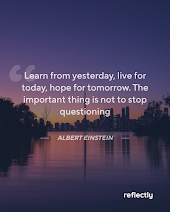Welcome to Perspectives, A Daily Outsider Property Working to Help transform our Conversation About Our World.
Sunday, April 30, 2023
Sunday, April 23, 2023
On Our "Weekly Route 66" This Week: Out & About in Our World
It has been quite a week in our World, exemplified by the headlines above and two key missions we've embraced here at the Daily Outsider.
On our "Virtual Route 66" we noticed a week that saw China continue to assert its' power; US House Speaker Kevin McCarthy presented a debt plan that was dead on arrival (based on our assessment), Bashar Assad's rehabilitation in the Arab World continued, the exiled Iranian Crown Prince Reza Pahlavi went to Israel to honor Holocaust Memorial Day in Israel, The UK continued its' struggles as another UK Senior Minister resigned and as the Scottish National Party fought for its existence and relevancy as the UK Labor Party continued its ascent on the eve of local elections throughout the UK. In the United States, Governor Ron Desantis continues its' war on Disney as he gears up for his expected campaign to run for President as former President Trump continues to dominate the polls despite the New York Indictment and other looming indictments. Joe Biden teased a re-election announcement. We have also been assessing the situation in Africa as Sudan has exploded into civil war. We also visited Venezuela as it once again recorded the highest inflation rate in the World. Buzzfeed News also died this week as AI continued its' ascent (and our team released a notation in our Visions property that will be available soon).
We present a snapshot of the week that was with thoughts courtesy of Politico, France24, Atlantic, Financial Times, The National, Crooked Media & other leading thinkers around the World:
| ||||||||||||||||||||||||||||||||||||||||||||||||||||||||||||||||||||
|
PoliticsGrand Delusion — America’s imposition on incompatible Middle East realities
SUDANClashes and explosions shook Sudan's capital despite the army and RSF agreeing to a 24-hour ceasefire from yesterday. Sudanese people are increasingly fearing food and water shortages, humanitarian agencies said as they called for better access to help civilians. Follow the latest news from the Sudan crisis here SYRIASaudi Arabia’s Foreign Minister Prince Faisal bin Farhan arrived in Syria yesterday in the first visit by a senior Saudi official to the country since the civil war erupted in 2011, Syria’s Information Ministry has said. There is no place for a “revenge mentality” in decisions Arab states are making over relations with the Syrian regime, a former political adviser to the country's Minister of Information told The National. ISRAELPrime Minister Benjamin Netanyahu vowed that Israel would continue its “fight” to prevent Tehran from developing nuclear weapons, during a Holocaust ceremony attended by Iran's exiled crown prince on Monday. A Palestinian gunman fired shots at a vehicle in the Sheikh Jarrah area of East Jerusalem yesterday, wounding two people, Israeli emergency services said. IRANPresident Ebrahim Raisi has threatened to flatten the cities of Haifa and Tel Aviv while marking his country’s annual Army Day. LEBANONHundreds of workers from Lebanon’s public sector protested in front of the seat of government, as the nation’s caretaker cabinet convened to discuss their salaries. Meanwhile, Lebanon’s Parliament convened yesterday, despite a boycott by some members of the assembly. On the anniversary of the 1983 bombing of the US embassy in Beirut, the US State Department announced a multimillion-dollar reward for information that would lead to the capture of a leader of Hezbollah, the group that claimed responsibility for the attack. UAEThe UAE and Qatar are working to reopen embassies as part of a move to re-establish ties two years after the 2021 AlUla declaration signalled an end to the Gulf rift. President Sheikh Mohamed held an iftar banquet yesterday in honour of Jordan's King Abdullah II in Abu Dhabi. The UAE's Ramadan food drive has raised more than Dh1 billion to help tackle global hunger.
Chaotically Human
My colleague Charlie Warzel worked at BuzzFeed News in the 2010s. He identifies those years as a specific era of the internet—one that symbolically died yesterday with the news of the website shutting down. Yesterday, Charlie offered a glimpse of what those years felt like for people working in digital media: I worked at BuzzFeed News for nearly six years—from March 2013 until January 2019. For most of that time, it felt a bit like standing in the eye of the hurricane that is the internet. Glorious chaos was everywhere around you, yet it felt like the perfect vantage to observe the commercial web grow up. I don’t mean to sound self-aggrandizing, but it is legitimately hard to capture the cultural relevance of BuzzFeed to the media landscape of the mid-2010s, and the excitement and centrality of the organization’s approach to news. There was “The Dress,” a bit of internet ephemera that went so viral, we joked that that day might have been the last good one on the internet. Charlie goes on, and his essay is worth reading in full, but today I’d like to focus on the point he ends on: that the internet of the 2010s was human in a way that today’s is not. Charlie doesn’t just mean human in the sense of not generated by a machine. He’s referring to chaos, unpredictability, delight—all of the things that made spending time on the internet fun. Charlie explains how Buzzfeed News’ ethos emphasized paying attention to the joyful and personal elements of life online: BuzzFeed News was oriented around the mission of finding, celebrating, and chronicling the indelible humanity pouring out of every nook and cranny of the internet, so it makes sense that any iteration that comes next will be more interested in employing machines to create content. The BuzzFeed era of media is now officially over. What comes next in the ChatGPT era is likely to be just as disruptive, but I doubt it’ll be as joyous and chaotic. And I guarantee it’ll feel less human. The shrinking humanity of the internet is a theme that Charlie’s been thinking about for a while. Last year, he wrote about why many observers feel that Google Search is not as efficient as it used to be—some argue that the tool returns results that are both drier and less useful than they once were. Charlie learned in his reporting that some of the changes the Search tool has rolled out are likely the result of Google’s crackdowns on misinformation and low-quality content. But these changes might also mean that Google Search has stopped delivering interesting results, he argues: In theory, we crave authoritative information, but authoritative information can be dry and boring. It reads more like a government form or a textbook than a novel. The internet that many people know and love is the opposite—it is messy, chaotic, unpredictable. It is exhausting, unending, and always a little bit dangerous. It is profoundly human. It’s also worth remembering the downsides of this humanity, Charlie notes: The unpredictability that some people are nostalgic for also gave way to conspiracy theories and hate speech in Google Search results. The Google Search example raises its own set of complex questions, and I encourage those interested to read Charlie’s essay and the corresponding edition of his newsletter, Galaxy Brain. But the strong reactions to Google Search and the ways it is changing are further evidence that many people crave an old internet that now feels lost. If the internet is becoming less human, then something related is happening to social media in particular: It’s becoming less familiar. Social-media platforms such as Friendster and Myspace, and then Facebook and Instagram, were built primarily to connect users with friends and family. But in recent years, this goal has given way to an era of “performance” media, as the internet writer Kate Lindsay put it in an Atlantic article last year. Now, she wrote, “we create online primarily to reach people we don’t know instead of the people we do.” Facebook and Instagram are struggling to attract and retain a younger generation of users, Lindsay notes, because younger users prefer video. They’re on TikTok now, most likely watching content created by people they don’t know. And in this new phase of “performance” media, we lose some humanity too. “There is no longer an online equivalent of the local bar or coffee shop: a place to encounter friends and family and find person-to-person connection,” Lindsay wrote. I came of age in the Tumblr era of the mid-2010s, and although I was too shy to put anything of myself on display, I found joy in lurking for hours online. Now those of us looking for a place to have low-stakes fun on the internet are struggling to find one. The future of social-media platforms could surprise us: IOS downloads of the Tumblr app were up by 62 percent the week after Elon Musk took control of Twitter, suggesting that the somewhat forgotten platform could see a resurgence as some users leave Twitter. I may not have personally known the bloggers I was keeping up with on Tumblr, but my time there still felt human in a way that my experiences online have not since. The feeling is tough to find words for, but maybe that’s the point: As the internet grows up, we won’t know what we’ve lost until it’s gone. Related: |
Today’s News
|
 |
Global EconomyHow the Ukraine war has divided the worldChina is making diplomatic progress with countries that are unhappy about America’s approach to the conflict APRIL 17, 2023 by Gideon Rachman |

















:quality(70)/cloudfront-eu-central-1.images.arcpublishing.com/thenational/6HZ2WQFJW5ATDBH6KVNMYETBZA.jpg)














